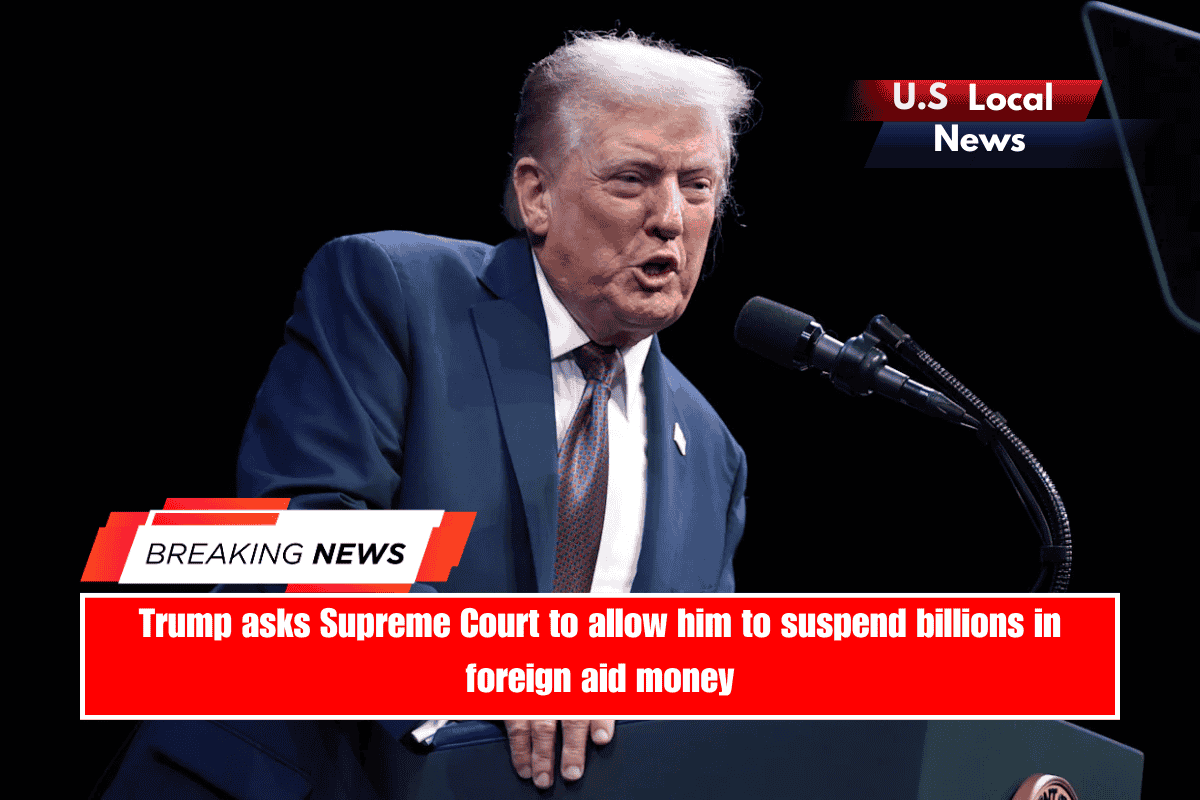Washington — President Trump’s administration asked the Supreme Court on Monday to allow it to freeze billions of dollars in foreign aid funding, seeking its intervention in a dispute over the president’s refusal to spend money appropriated by Congress for foreign assistance programs.
The Trump administration is requesting that the Supreme Court partially halt a lower court order requiring it to spend more than $4 billion in aid by the end of September. Mr. Trump is attempting to recoup the funds, which have already been approved by Congress, through a rarely used tactic known as pocket rescission.
The dispute also involves an additional $6.5 billion in foreign assistance, though the Justice Department has stated that it is working to obligate those funds by September 30, the end of the fiscal year.
The legal battle quickly moved to the Supreme Court after U.S. District Judge Amir Ali ruled last week that the executive branch was required to spend the $4 billion in foreign aid funds appropriated by Congress. The Justice Department requested that the United States Court of Appeals for the District of Columbia Circuit freeze that decision, but it declined last Friday.
In seeking emergency relief from the Supreme Court, Solicitor General D. John Sauer stated that the district court’s injunction “raises a grave and urgent threat to the separation of powers.” He is asking the Supreme Court to suspend the district court’s order only for the $4 billion that Mr. Trump is attempting to rescind.
“The President can hardly speak with one voice in foreign affairs or in dealings with Congress when the district court is forcing the Executive Branch to advocate against its own objectives,” Sauer complained.
Since returning to the White House, the Trump administration has canceled billions of dollars in contracts and grants it claims do not align with the president’s policy goals. On the first day of his second term, the president issued an executive order calling for a 90-day pause in foreign aid and stating that administration officials would decide whether to continue or terminate each foreign assistance program.
Congressional Democrats estimate that the president has canceled or frozen more than $425 billion in federal funding.
The most recent case before the Supreme Court was brought by a group of nonprofits and businesses that receive funding for foreign assistance projects. The plaintiffs claimed that the 90-day freeze was an unconstitutional use of the president’s authority.
The case has already reached the Supreme Court, albeit at an earlier stage in the proceedings. In early March, the Supreme Court split 5-4 in rejecting the president’s request to keep $2 billion in foreign aid frozen while the case was pending.
The case has progressed since then. Last month, a three-judge panel of the D.C. Circuit ruled that nonprofits and businesses could not sue. The 2-1 panel overturned Ali’s order prohibiting the government from impounding congressionally appropriated foreign aid funds.
However, the D.C. Circuit panel issued an amended opinion late last month, allowing nonprofits and businesses to seek relief on a variety of legal grounds.
Following that decision, Mr. Trump wrote to Congress proposing to rescind a total of $4.9 billion in funding for the State Department, international development programs, and the United States Agency for International Development, which the president has moved to shutter.
The president’s proposal is an attempt to cut funding unilaterally, which has not been done in nearly 50 years. One Republican has called the effort “unlawful,” claiming that the Constitution clearly grants Congress the power of the purse.
The plaintiffs in this case sought a new preliminary injunction. Last week, Ali determined that the government has a statutory obligation to spend the $4 billion subject to Mr. Trump’s rescission proposal. He directed the Trump administration to spend the expiring funds approved by Congress for foreign assistance unless Congress claws them back in accordance with federal law.
In seeking relief from the Supreme Court, Sauer, the solicitor general, stated that Ali’s injunction “puts the executive branch at war with itself” by requiring it to spend the same $4 billion that the president wishes to recoup.









